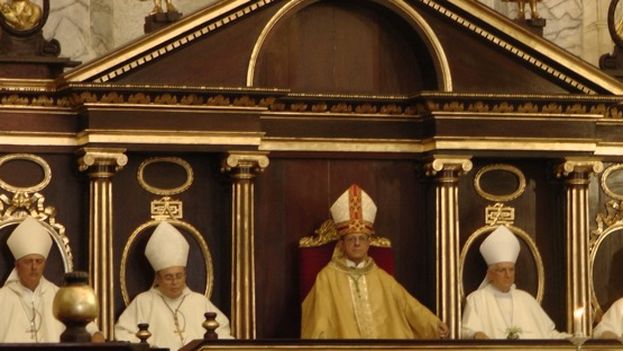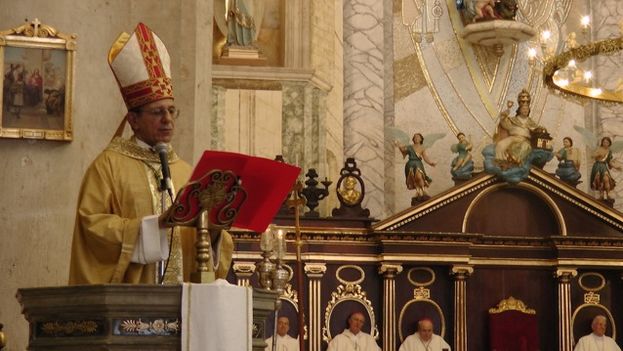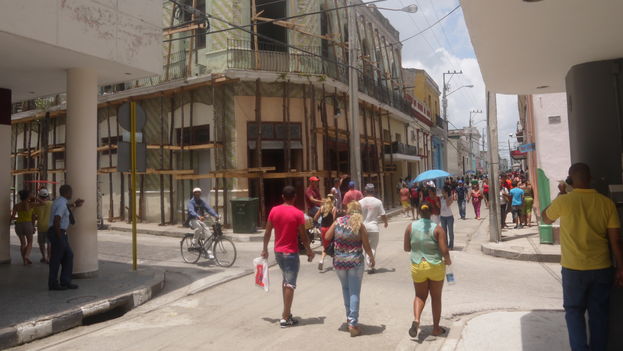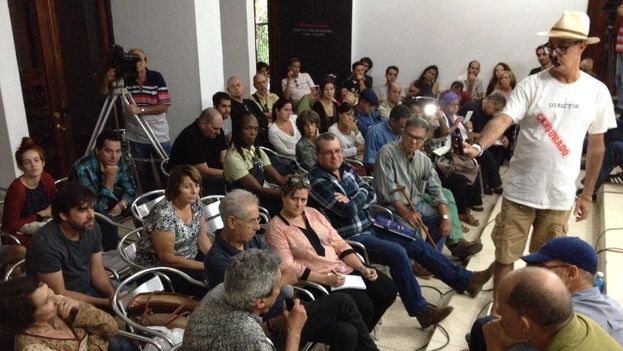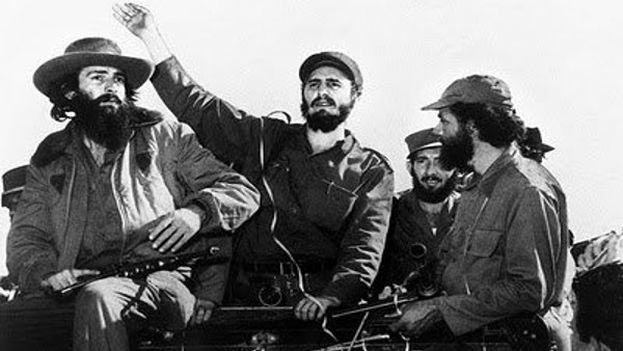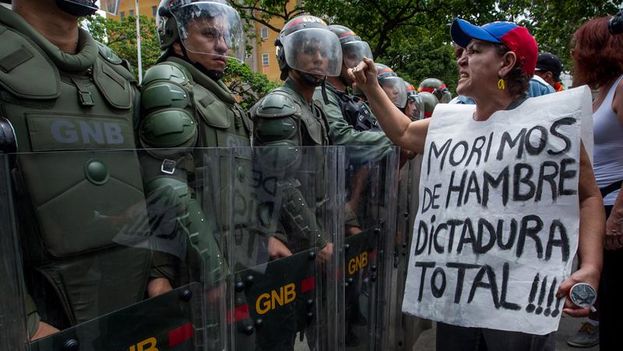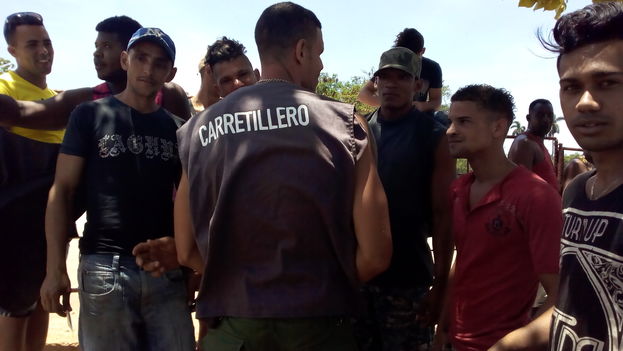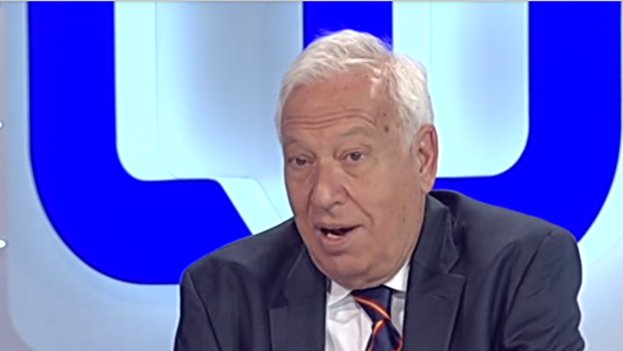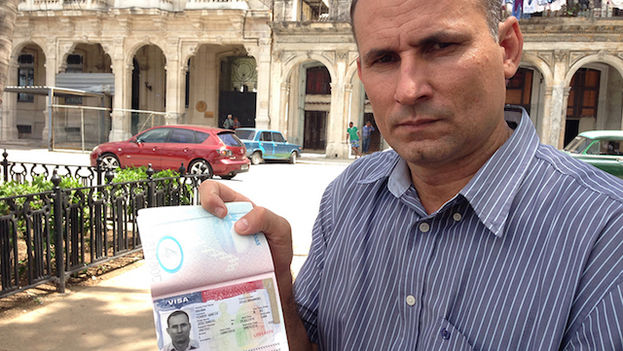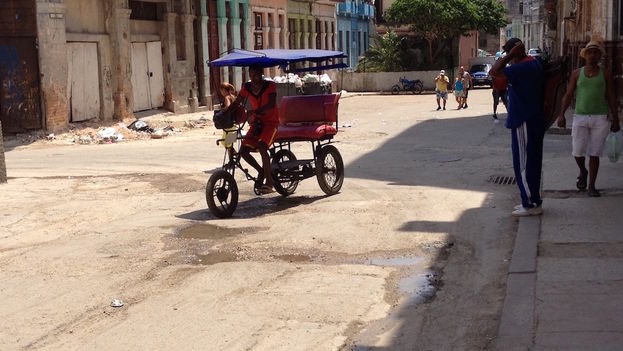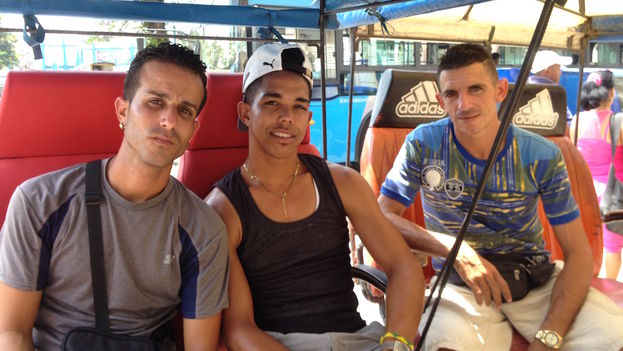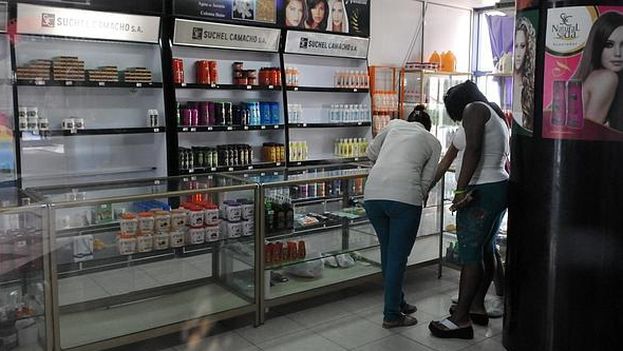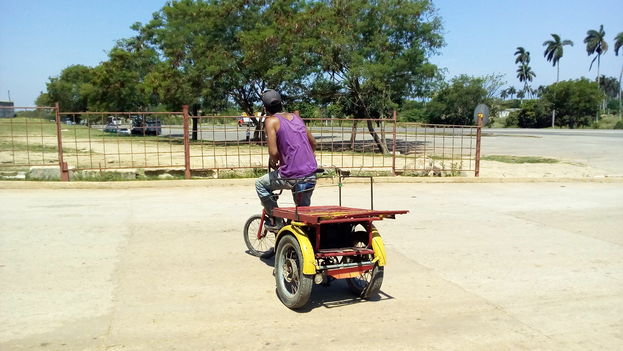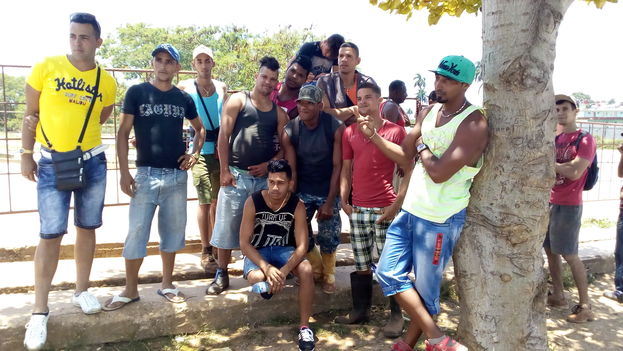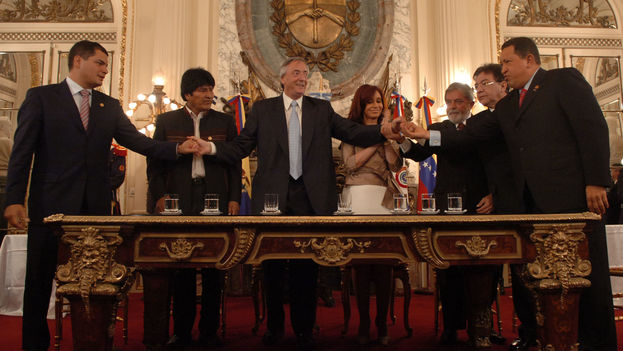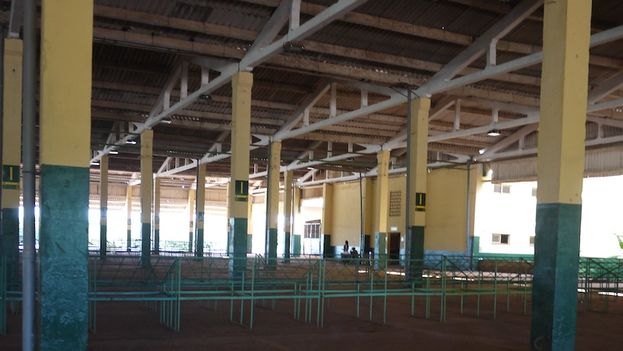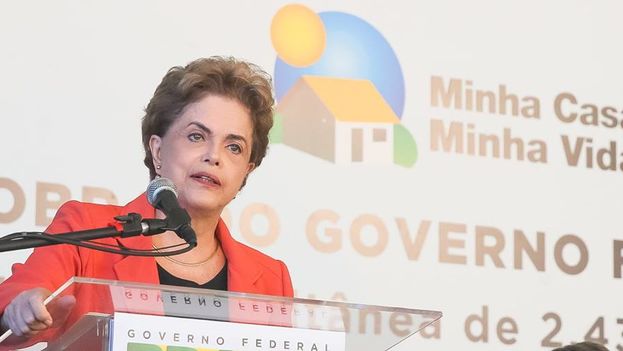It is without a doubt, good news. The bad news is that social balance becomes dangerously fragile in a society where rights and prosperity have been banned, where institutions respond fully to the interests of the parasite power, where any opposition to the government is illegal and where public debate and dialogue between the power and “governed” are non-existent. continue reading
As the social tension grows and the government increases the obstacles, uncertainty becomes greater as to ways a conflict could be unleash that would elude institutional control.
If the power caste did not suffer from the colossal blindness of its proverbial arrogance, it would have enough lucidity to interpret the current signs
It seems that the above facts are insignificant and isolated amid the general acquiescence of Cubans with respect to their government. However, such events were unthinkable just five years ago, and even less so during the period prior to July 30, 2006, when the “Proclamation” was made public, which declared Fidel Castro’s supposed temporary withdrawal from the presidential chaise lounge, which he had intended to be his for life. The proclamation gave some hope to the people about improvements in their living conditions.
If the power caste did not suffer from the colossal blindness of its proverbial arrogance, it would have enough lucidity to interpret the current signs, especially when the still timely efforts of the people’s protests are taking place just weeks after the conclusion of the last Congress of the Cuban Communist Party, where presumably national economic and socio-political strategies were drawn for at least until 2030. A moderately insightful Government would at least have the perception that the social acceptance of its eternal monologue had ended and that the urgencies of the national reality far outweigh the temporary and strategic limits set by the Party Guidelines.
Like it or not, the lords of power must understand that the Cuban crisis demands changes dictated from social slogans, not from the Palace of the Revolution, and that such changes must occur willingly–that is, starting from a real national debate from which a transitional covenant might emerge–or by force, when an undesirable social explosion could take place due to the unstoppable deterioration of the population’s living conditions, with unpredictable consequences.
It turns out that autocracies are not designed for public scrutiny. Far from establishing a national dialogue which would, in principle, act as an escape valve for frustrations, the last page of the Party newspaper Granma on Tuesday May 17th, 2016 contained an article which is the absolute denial of this possibility. The article is titled Rules for Debate or Matter of Principles, signed by a (let’s use the term they prefer) “revolutionary intellectual” by the name of Rafael Cruz Ramos, which establishes two simple “rules” for an imaginary debate which, by the way, the reader never catches a glimpse of.
In Cuba, we know, all money is cursed, unless it is blessed and managed by the leaders of the Castro-cracy
Summarizing a substantial verbal extraction that fills an entire page with what might have been said in a few paragraphs, Mr. Cruz tries unsuccessfully to enunciate a first rule, designed not to establish the basis or topics for that nonexistent debate-monologue of his, but what will not be included in it, under any circumstances.
We should not ever debate with “those who come to us carrying a political fragmentation grenade ready to have it explode in the heart of the country, of the Republic, of the motherland, in order to destroy the socialist system under construction and restore the archaic and worn-out capitalist system” Cruz Ramos assures us, though no one knows what authority or supranational power this unknown subject has that he can issue such categorical guidelines.
The second rule is also set from denial, and validating the same old Castro-style singsongs: “We will not deal with anyone who is funded, backed, or supported by the terrorist anti-Cuban money from Miami or any other nation, including those of old Europe”. Because in Cuba we already know that all money is cursed unless it is blessed and managed by the leaders of the Castro-cracy, who will later distribute some loose change or other prizes among its most faithful servants. This may well be Mr. Cruz Ramos’s case.
The article is extremely emotional and perhaps because of that it is extremely vague. It is hard to figure out what he means by “we,” what topics would be subject to debate, who would participate, who would carry the dangerous “political fragmentation grenade” or what it consists of. Instead, it can be assumed that there will be no debate with anyone who is not on the side of the political power. Therefore, from this point any possibility for debate is null.
Cruz Ramos could have saved his efforts. Because if we are talking about a debate, it would be a discussion between two or more individuals, groups, etc., on topics or issues of public interest, in which a moderator and audience would also participate. It may be oral, written, or take place in an internet forum, but in all cases certain rules and recommendations must be observed that will allow for the development of the discussions, and, in the best of cases, making agreements.
The standards and recommendations are universal and unavoidable for the development of any discussion, and consist of observing principles as basic as not imposing one’s personal views, making a point through argument and counter-argument, listening carefully to others, without interrupting or underestimating their criteria, being brief and concise, respecting differences, speaking freely, expressing ourselves clearly, using appropriate vocabulary, avoiding verbal or physical attacks as well as mocking and other behaviors that might disqualify the antagonist, among others.
Cruz Ramos does not propose a debate, but total commitment of Cubans to the Government
But Cruz Ramos violates every one of these rules, ending exactly in the opposite corner: he disqualifies a priori the potential antagonist, he refuses to listen to arguments other than his own, he has no argument but argues, criticizes in the abstract without offering concrete proposals, he extends unnecessarily without managing to explain or make himself clearly understood. Cruz Ramos does not propose a debate, but total commitment of Cubans to the Government
On the other hand, his convoluted discourse mixes dissimilar topics and out of context references, distorting facts, history, characters and his and others’ realities. An apparent inconsistency which is, nevertheless, perfectly consistent with the system he defends. So, to refute each and every one of the passionate lines of Rules for Debate… would be as extensive as it would be unproductive, especially when it becomes obvious that this is his intention: to distract from the essence, which is the failure of the Cuban sociopolitical system imposed on Cubans more than half a century ago.
But, at least it is useful to note what is unable to be concealed of the conjunction of two great fears of the Government cupula: the real possibility that popular protests might become more generalized–which is not or does not have the same political costs to strike dissident demonstrations or repress poor people for whom, de jure, the Revolution was created more than half a century ago–and the impossibility of further delaying, without consequences, a broad and inclusive debate over Cuba’s destinies.
It becomes clear that if the Castro regime does not feel capable of withstanding the test of a national debate, then its weakness is as great as its arrogance. But if, in addition, the best of its think-tanks, in order to deal with that eventuality carry the same argumentative-theoretical baggage as Rafael Cruz Ramos, the debate can already be considered lost.
Translated by Norma Whiting
